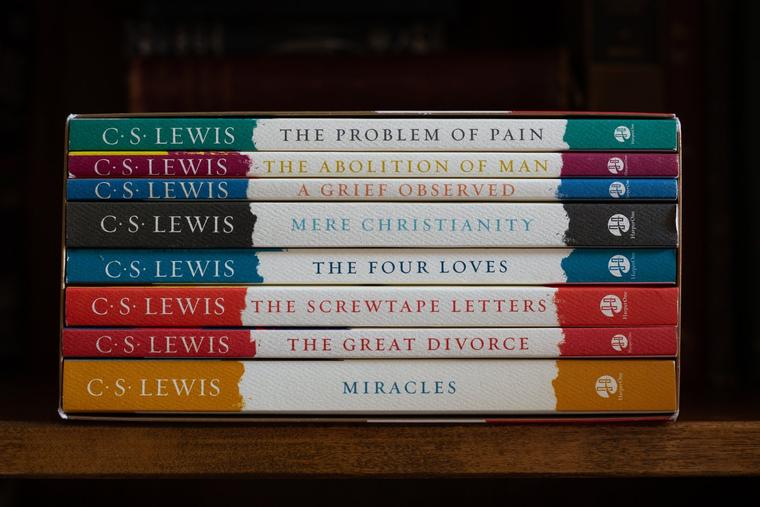- Feb 5, 2002
- 179,476
- 64,482
- Country
- United States
- Gender
- Female
- Faith
- Catholic
- Marital Status
- Married
- Politics
- US-Others
COMMENTARY: On the 60th anniversary of their deaths, it’s clear it was Lewis who was truly prophetic — for he offered an apologetic for Christ, not for man’s own mastery of the future.
What did the future look like 60 years ago?
On Nov. 22, 1963, President John F. Kennedy was assassinated. On the same day, two significant writers also died: C.S. Lewis and Aldous Huxley.
That historic coincidence prompted Peter Kreeft to write a book imagining what the three souls might discuss as they meet in the afterlife. Entitled Between Heaven and Hell, it is a “dialogue somewhere beyond death” featuring JFK arguing for “modern humanism,” Lewis for Christian theism and Huxley for Eastern pantheism. The book can be read, according to Kreeft, as a “defense of the central Christian claim (that Jesus Christ is God incarnate) against both modern Western secular objections and ancient Eastern religious objections.”
There is another way to look at the three deceased, though, namely in relation to their vision of the future. Here, JFK and Huxley find themselves opposed, while Lewis offers the truly Christian approach to the future, the virtue of hope, which is neither optimistic nor pessimistic.
Continued below.

 www.ncregister.com
www.ncregister.com
What did the future look like 60 years ago?
On Nov. 22, 1963, President John F. Kennedy was assassinated. On the same day, two significant writers also died: C.S. Lewis and Aldous Huxley.
That historic coincidence prompted Peter Kreeft to write a book imagining what the three souls might discuss as they meet in the afterlife. Entitled Between Heaven and Hell, it is a “dialogue somewhere beyond death” featuring JFK arguing for “modern humanism,” Lewis for Christian theism and Huxley for Eastern pantheism. The book can be read, according to Kreeft, as a “defense of the central Christian claim (that Jesus Christ is God incarnate) against both modern Western secular objections and ancient Eastern religious objections.”
There is another way to look at the three deceased, though, namely in relation to their vision of the future. Here, JFK and Huxley find themselves opposed, while Lewis offers the truly Christian approach to the future, the virtue of hope, which is neither optimistic nor pessimistic.
Continued below.

JFK, Aldous Huxley and C.S. Lewis: Whose Vision of the Future Was the Most Accurate?
COMMENTARY: On the 60th anniversary of their deaths, it’s clear it was Lewis who was truly prophetic — for he offered an apologetic for Christ, not for man’s own mastery of the future.

